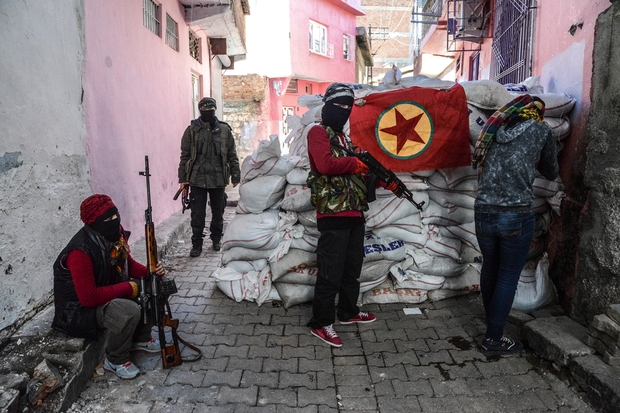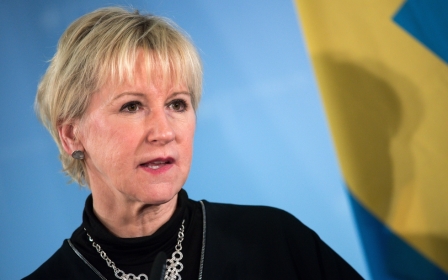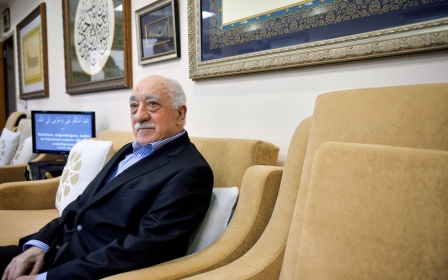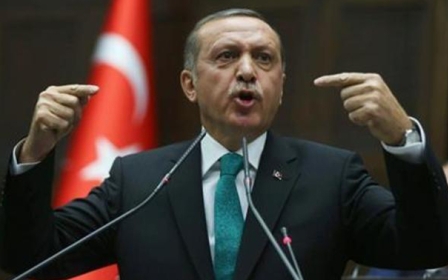Turkey accuses Gulen network of passing secrets to PKK

ISTANBUL, Turkey - Turkish intelligence chiefs have accused supporters of Fetullah Gulen of working with the PKK, claiming they have been passed state secrets to the Kurdish militants in exchange for passage out of the country after the failed coup.
The Monday statement from a senior intelligence official comes one month after the failed coup of 15 July, which the Turkish government blames on Gulen, the US-based preacher, and his followers who form what Turkey calls "FETO", or the "Fethullah Terrorist Organisation".
“In recent weeks, runaway operatives that successfully reached Iraq have been accompanied by PKK elements on the ground,” a senior Turkish intelligence official said in a note to journalists.
“We are aware that some FETO operatives have been offered safe passage to Europe in return for operational information about ongoing operations and working method of MIT and the military.”
Turkey is fighting a decades-long war with the PKK, which originally demanded Kurdish independence, but has since tempered its demands to equal rights and autonomy.
“FETO operatives have had an active relationship with PKK militants for some time,” the intelligence official said.
Another Turkish official said on Monday that a former chief prosecutor suspected of being part of Gulen’s movement was caught by border guards attempting to cross the Turkish-Syrian border from the Turkish town of Kilis.
Ekrem Beyaztas, the chief prosecutor from the eastern Turkish city of Erzurum, was removed from office following the coup attempt and had an arrest warrant in his name.
“Our initial assessment is that he was trying to reach PYD controlled parts of northern Syria in an attempt to seek protection,” the official said, in reference to the Kurdish Democratic Union Party based across the border.
According to the official, coup plotters on the run have been trying to leave Turkey via routes traditionally used by the PKK to smuggle militants and weapons in and out of the country.
Ankara has launched a major crackdown on alleged Gulen followers since the 15 July coup attempt, resulting in thousands of arrests and suspensions and dismissals from jobs.
Turkey’s nearly 900km-long border with Syria is porous and Ankara had faced accusations in the past of turning a blind eye to Islamic State militants using Turkish territory for logistical and other purposes.
Ankara has vehemently denied such charges.
Turkey’s foreign minister, Mevlut Cavusoglu, on 13 August condemned the murder of Naci Adiyaman, a local AKP party youth branch chief in southeastern Turkey on Twitter:
“FETO’s blood brother, the murderous PKK, martyred our brother Naci, our youth branch chief in Beytussebap.”
Monday also marks the anniversary of the day the PKK took up arms against the Turkish state 32 years ago.
The PKK had announced that it would cease attacks on Turkish targets in the wake of the coup attempt.
But earlier this month, one of its senior leaders, Cemil Bayik, promised to target major cities.
An almost three-year-long fragile ceasefire came to an abrupt end in July last year and has led to some of the fiercest clashes in this ongoing conflict.
New MEE newsletter: Jerusalem Dispatch
Sign up to get the latest insights and analysis on Israel-Palestine, alongside Turkey Unpacked and other MEE newsletters
Middle East Eye delivers independent and unrivalled coverage and analysis of the Middle East, North Africa and beyond. To learn more about republishing this content and the associated fees, please fill out this form. More about MEE can be found here.




